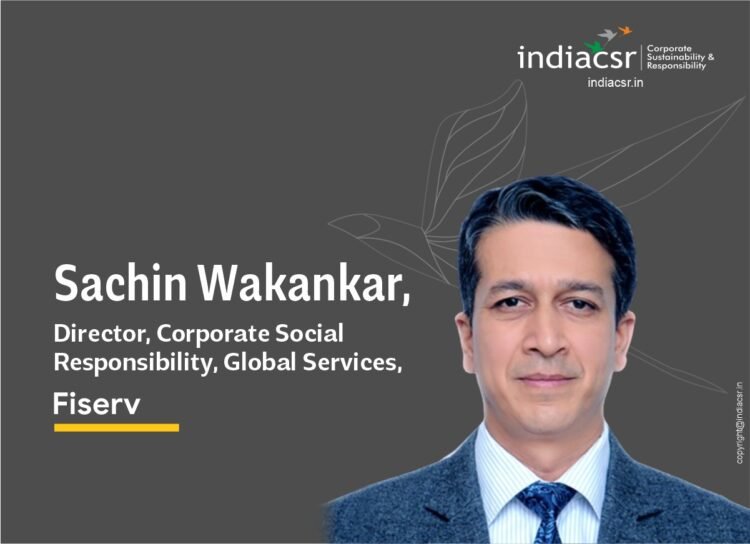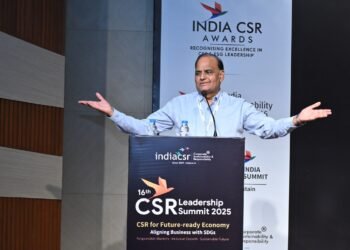The STEM Laboratory project began at a Gram Panchayat school in Chennai, initially reaching 400 students.
NEW DELHI (India CSR): In an era where corporate responsibility shapes the future, Fiserv stands out as a beacon of innovation, commitment, and genuine care for communities around the globe. In an interview with India CSR, Sachin Wakankar, Director, Corporate Social Responsibility, Global Services, Fiserv, at the helm of Fiserv’s CSR initiatives, offers an in-depth look into how Fiserv intertwines social responsibility with its core business operations, setting a benchmark for meaningful corporate engagement.
From empowering communities through education and skill development to advocating for environmental sustainability and inclusivity, Fiserv’s journey under Wakankar’s guidance is a testament to the transformative power of CSR. Through strategic investments and partnerships, Fiserv not only champions social causes but also aligns them with its business values, creating a ripple effect of positive change across communities.
Join us as we delve into the ethos of Fiserv’s CSR approach, exploring the impact, challenges, and aspirations that drive their mission forward.
Excerpts:
1. How does your organization define and prioritize corporate social responsibility?
At Fiserv, Corporate Social Responsibility (CSR) is inherently integrated into our business operations as the “Right Thing to Do.” Identifying with local communities and aligning with social initiatives helps us achieve business goals while creating meaningful impact.
Driven by our global approach of creating a positive and lasting impact in communities across the world, we continuously endeavour to Empower People, Invest in Sustainable Systems, Champion Responsible Business Practices and Advance Communities and Society. In India, our presence across major cities has been a great stimulus, enabling us to experience, understand, and address the diverse needs of different communities, thereby helping us fine tune our CSR efforts.
In the past 12 months, Global Services invested INR 6.2 Crores in CSR, focusing on Education, Social Inclusion, Environmental Stewardship, and Health and Wellness. The needs of local communities continue to drive our CSR strategy, shaping our corporate aspirations while driving impactful and lasting change.
***

2. Can you provide an overview of your company’s overarching CSR strategy and its alignment with your business values and objectives?
At Fiserv, our vision for Corporate Social Responsibility (CSR) is centred on giving back to the communities where we live and work, a commitment embodied in our global CSR program, ‘Fiserv Gives Back’.
Our CSR strategy adopts a holistic approach, fostering innovative thinking at the intersection of client and community needs, organizational capabilities, and associate engagement. This methodology allows us to effectively address the most pertinent issues and align our efforts with our team members’ genuine passions, ensuring a more meaningful and sustainable impact and Shared Value to all.
***

3. Are there any specific community development projects or partnerships that your organization is particularly proud of?
At Fiserv, each program within our Corporate Social Responsibility (CSR) framework is pursued with a sense of pride. Towards this, the STEM Laboratory project stands out as one of our flagship initiatives. It represents our collective commitment to education and community development.
Launched in 2021 to bring experiential STEM (Science, Technology, Engineering, and Mathematics) learning to underserved students, this project was crafted to be transformative, sustainable, and scalable. Our vision was to create a learning experience that was both educational and exciting.
The STEM Laboratory is curated to translate scientific theories into experiential and interactive models, leveraging the expansive network of public education in government and government-aided schools while partnering with State Education Departments to secure long-term success.
The STEM Laboratory project began at a Gram Panchayat school in Chennai, initially reaching 400 students. It has since grown significantly, extending its unique approach to learning across 34 government schools and benefiting nearly 17,000 students across the nation. This journey is not just a milestone but a living testament to our unwavering commitment to doing more and striving for excellence.
***
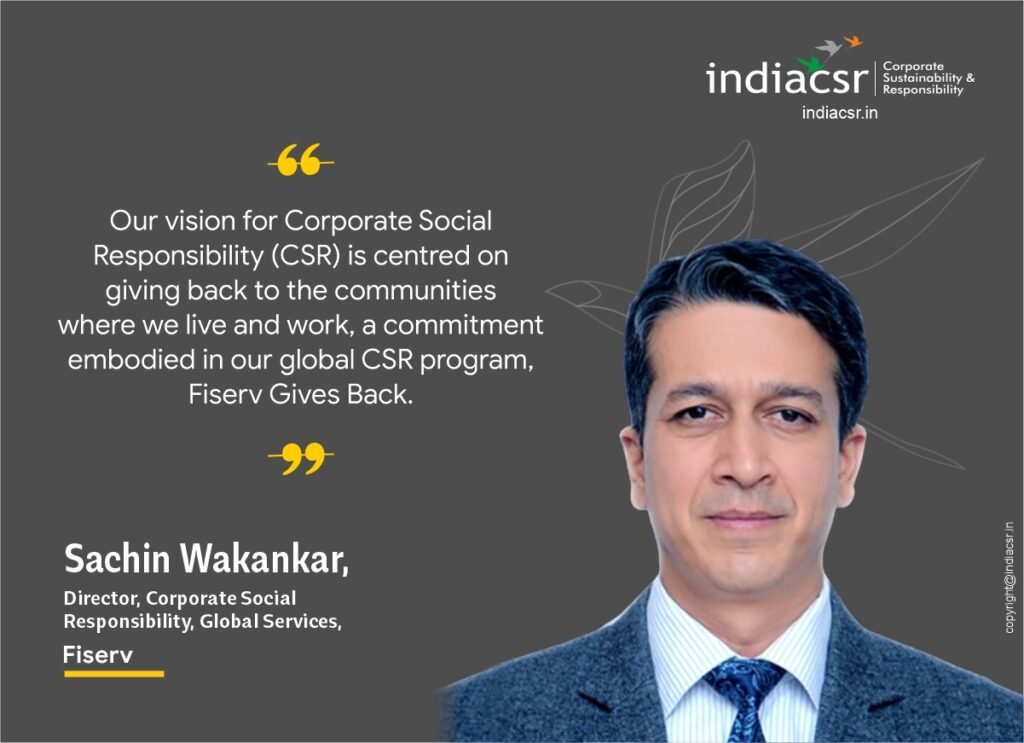
4. How does Fiserv prioritize community engagement and the development of skills that empower people, especially in underprivileged or marginalized communities?
Our approach is rooted in thoughtful, strategic dialogues within communities, focusing on their unique aspirations and challenges. This understanding forms the cornerstone of our engagements.
We diligently work at the intersection of various community attributes to pinpoint and deploy engagements that have the greatest potential for large scale change.
We are also mindful of the vastly different skilling needs across such a wide beneficiary spectrum. In the past year, our Entrepreneurship Incubation Projects have made a significant difference by supporting nearly 360 military veterans and 150 women from underserved communities, thereby fostering their growth and development. At the same time, for our younger student beneficiaries, we instituted a Higher Education Scholarship Program that supported 113 students, either parentless or from single-parent households.
In essence, our approach is fluid yet focused, adapting to the unique needs of each community. We not only strive to engage but to also inspire, not only to empower but also to elevate, bringing communities closer to realizing their dreams and potential.
***
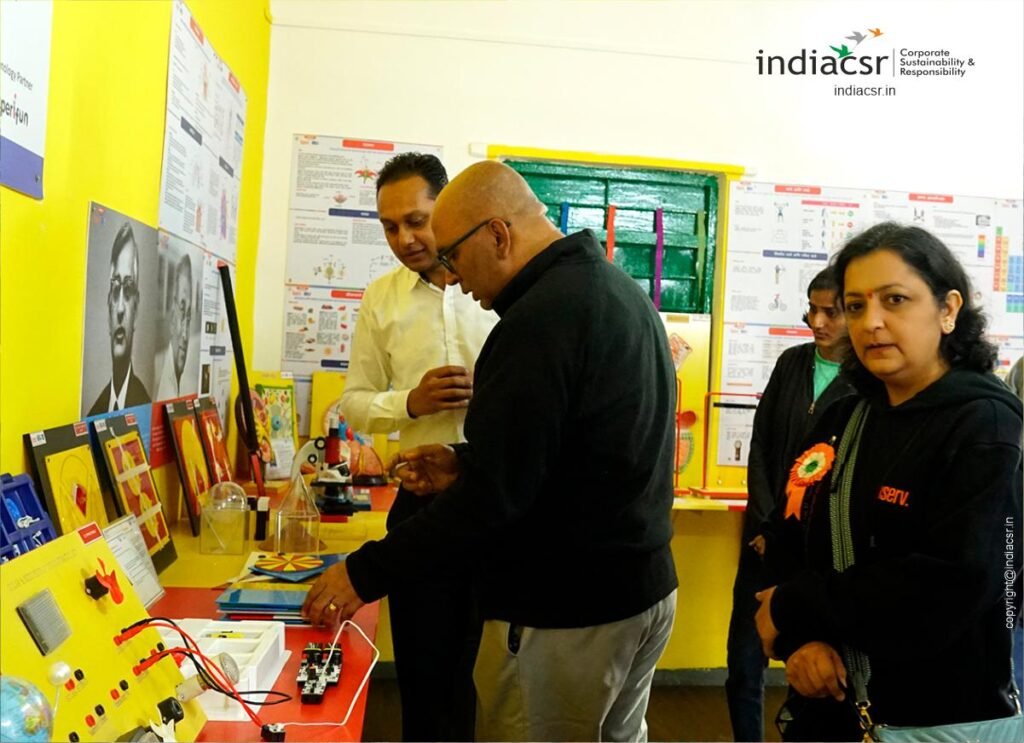
5. Can you provide examples of initiatives that aim to create a more inclusive environment for underrepresented groups, either within the company or through external partnerships?
A commitment to inclusion lies at the heart of our culture. Beyond carefully curated policies that safeguard this culture, we have Employee Resource Groups furthering this concept within the organization, while our CSR arm extends this commitment into our communities.
Rather than looking at a single program to address a profound cause like inclusion, our approach is multi-dimensional, following the Sensitize – Socialize – Support model. For instance, in supporting People with Disabilities, we drive internal conversations led by our Employee Resource Group, Thrive, our Disability Associate Council, with an aim of sensitizing our associates and driving a message of inclusion and the importance of understanding all its nuances.
Simultaneously, our CSR arm collaborates with organizations like The National Federation of the Blind, Maharashtra and Yes We Too Can Foundation, offering residential and educational support to over 60 visually disabled girls and professional skilling for people with over 125 persons with locomotor disabilities, in a strong partnership with the Ministry of Broadcast and Information, Government of India.
As we nurtured these initiatives, the Talent Acquisition teams partnered with Oorjja, a community dedicated to enabling people with special needs, to deliver a Train to Hire program. This culminated in the onboarding of six management trainees with hearing disabilities across various functions within Fiserv.
***
6. Can you share insights into Fiserv’s commitment to environmental responsibility, including any specific projects or practices aimed at reducing the company’s ecological footprint?
Fiserv is deeply committed to environmental responsibility, reflected both internally and throughout our community investment philosophy.
Internally, our Facilities and Administration teams have implemented several sustainability measures, across a few of our facilities. These include the installation of air-purifying plants, the use of carbon-neutral flooring and BIFMA certified chairs, as well as the employment of electric vehicle cabs for associate transport, in addition to ongoing efforts around EV charging stations.
In 2023, we intensified our Green Footprint across our cities, with a variety of initiatives under the Corporate Social Responsibility mandate. Ensuring that we keep our associates at the helm of these deliveries, a large number of volunteers have been instrumental in delivering these projects.
Delivered in partnership with the Environmental Foundation of India and the Green Hills Group, initiatives such as the Urban Afforestation project, the Pan India Bio-Diversity Drive, and the Chennai Lake Restoration project, have propelled our sustainability agenda forward.
Through these efforts, we successfully contributed to the afforestation of over 11 acres of urban hills with more than 3,000 trees and engaged in water management efforts across over 15 acres, in addition to clearing over 1,200 kg of waste from urban spaces.
Partnering with the Government of Tamil Nadu, at Chennai, we recently adopted the Keezhkatalai Lake for a restoration project. This 24-month-long initiative aims to create a vital habitat for wildlife and act as a flood barrier. The project encompasses beautification, establishing bird nesting islands, planting native species, and creating a space for community engagement across the 59-acre water body. Protracted projects, as environmental projects need to be, continue to work on a year-on-year development model and the onus of ensuring sustained support rests with us. Such partnerships reflect our dedication to environmental sustainability and community engagement.
We believe that every effort matters, no matter its size. The most impactful of these is the involvement of our associates, who extend our message beyond the organization and into our communities, thereby creating a more conscious society.
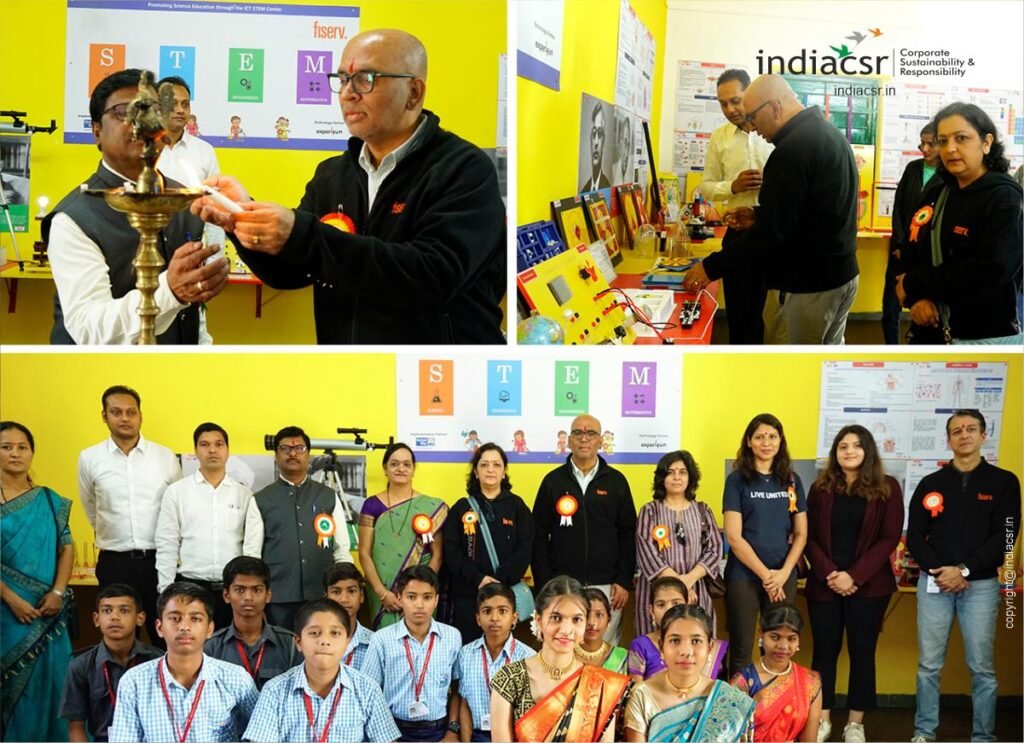
***
7. To what extent do you believe that a strong commitment to CSR contributes to long-term business success?
CSR is an integral part of an organization’s existence and must be viewed accordingly. It’s a vibrant driver of motivation from our organization, our teams, our clients, and the wider community. The holistic integration of diverse interests and needs is a vital part of who we are and how we operate.
We need to look beyond the simplistic view of CSR as mere financial contributions, or simply ‘signing a cheque.’ Instead, we must understand the multitude of dynamics that it touches, whether it be leveraging corporate resources for social good or creating opportunities for associates to relate better to the organization beyond business, enhancing morale, commitment, and productivity. All these aspects reflect the cultural fabric of an organization and significantly contribute to its success.
copyright@indiacsr.in
Also Read:

